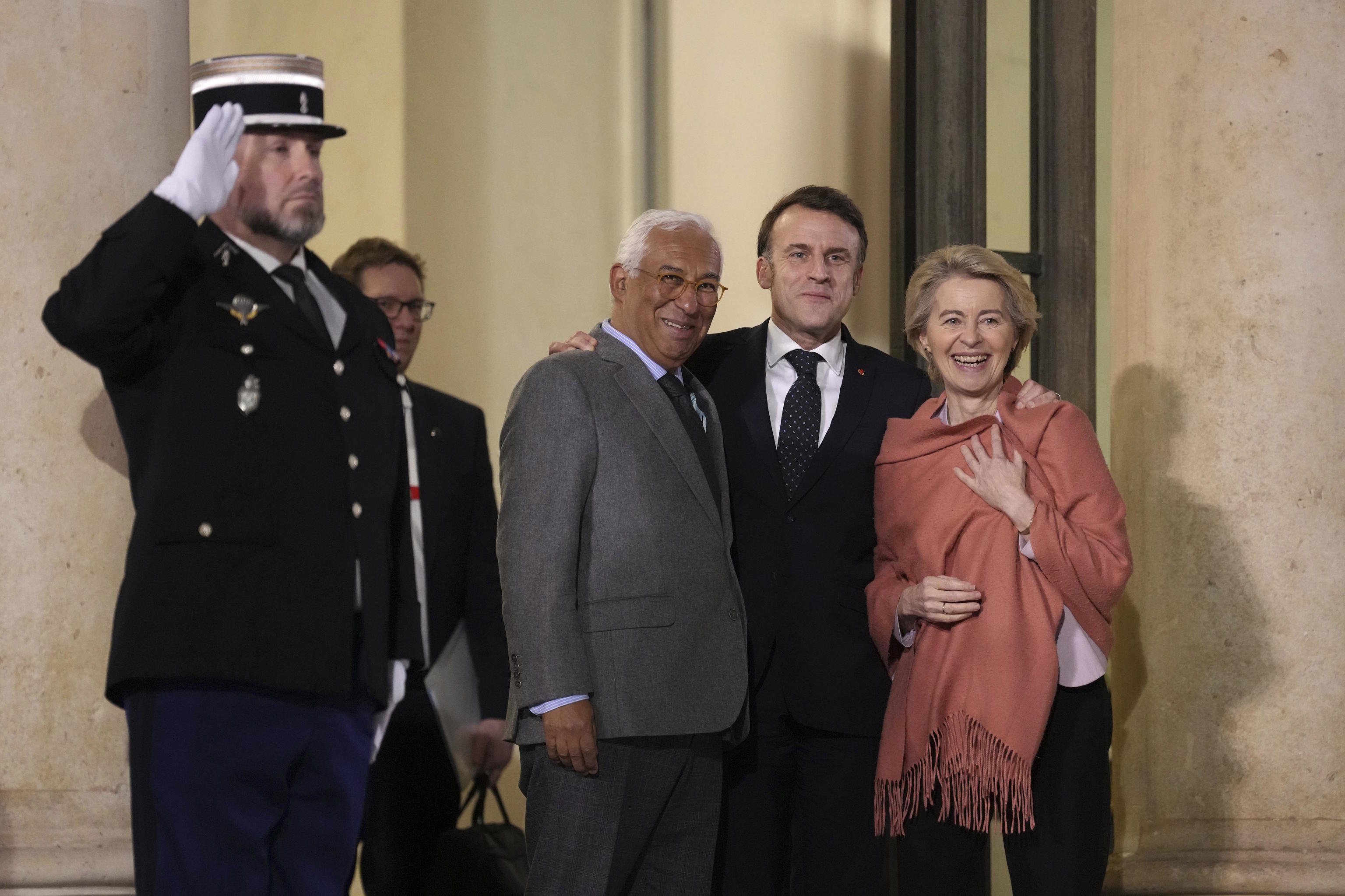Europe wakes up to the "sense of urgency", three years after the start of the war in Ukraine and in response to Donald Trump's initiative to open "peace negotiations" with Russia. The sudden and "informal" meeting of European leaders convened in Paris by Emmanuel Macron - following a phone call with the U.S. president - concluded with calls to increase their defense spending and with disagreements regarding the possibility of deploying a peacekeeping mission with European soldiers in Ukraine.
The tone was set from the outset by the President of the European Commission, Ursula von der Leyen, the first woman to serve as Defense Minister in Germany. "European security is at a turning point," Von der Leyen anticipated. "This is about Ukraine, but also about us. We need a sense of urgency and an increase in defense. And we need both now."
"We have to acknowledge that we have entered a new era and that we cannot desperately cling to the comforts of the past," declared British Prime Minister Keir Starmer following the Paris meeting. "The time has come to take responsibility, for our own security and for the security of the continent."
Starmer, who will meet with Donald Trump at the White House next week, may announce in the coming days a commitment to increase the UK's defense spending to the equivalent of 2.5% of GDP (currently at 2.3%). The Labour leader went even further and offered to send British soldiers to Ukraine as part of a European peacekeeping force. However, the announcement was met with skepticism by most leaders (only Sweden and the Netherlands took up the offer).
German Chancellor, Olaf Scholz, has directly rejected the proposal to send soldiers to Ukraine as premature and "highly inappropriate." "We welcome peace agreement talks," Scholz stated, "but it is clear that it cannot be imposed as a dictate," reaffirming Europe's support for Ukraine while emphasizing the need not to create a "rift" with the United States.
The Chancellor also raised the pressing issue of defense spending, urging the EU to reform its fiscal rules so that defense spending exceeding 2% of GDP is exempt from current restrictions (Germany currently allocates the equivalent of 2.1% of GDP to defense).
"No decision on Ukraine should be made without Ukraine," emphasized Polish Prime Minister Donald Tusk. Without needing to mention that Poland leads the EU (allocating the equivalent of 4.1% of GDP to defense spending), Tusk took the opportunity to call for "an increase in the military capacity" of the continent.
"Poland and the countries on the eastern flank feel like they are on the front line, with borders with Russia, Belarus, and war-torn Ukraine," warned the former President of the European Council. "As for Poland and the Baltic countries, we need European and allied investment in our security."
Danish Prime Minister, Mette Frederiksen, representing the Baltic countries, Italian Prime Minister, Georgia Meloni, Spanish Prime Minister, Pedro Sánchez, Dutch Prime Minister, Dick Schoof, and NATO Secretary General, Mark Rutte, were also among the dozen attendees at the emergency meeting in Paris, which stirred controversy among EU countries.
Several analysts noted Spain's inclusion, given its status as the lowest-ranked among European powers in terms of GDP percentage allocated to defense spending. Slovenian President, Nataa Pirc Musar, criticized the Paris summit attended by a third of the 27 leaders: "We have shown the world that not all EU countries are treated equally."
Representatives from Czech Republic and Romania also criticized the decision to exclude their respective countries from the meeting. Hungarian Foreign Minister, Péter Szijjártó, even accused the European leaders gathered in Paris of prolonging the war: "Unlike all of them, we support Donald Trump's ambition, we support negotiations between the United States, and we want peace in Ukraine."
